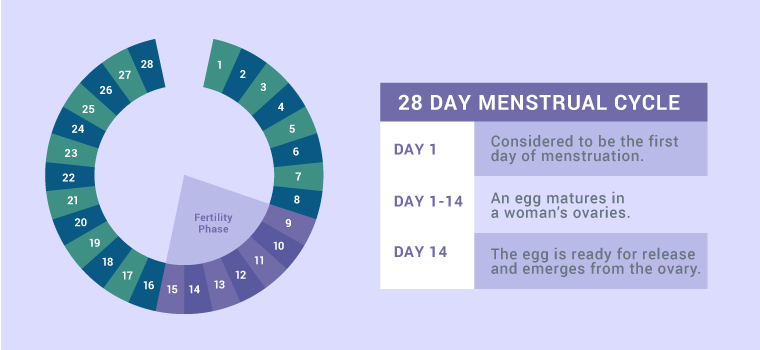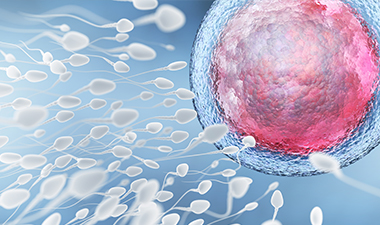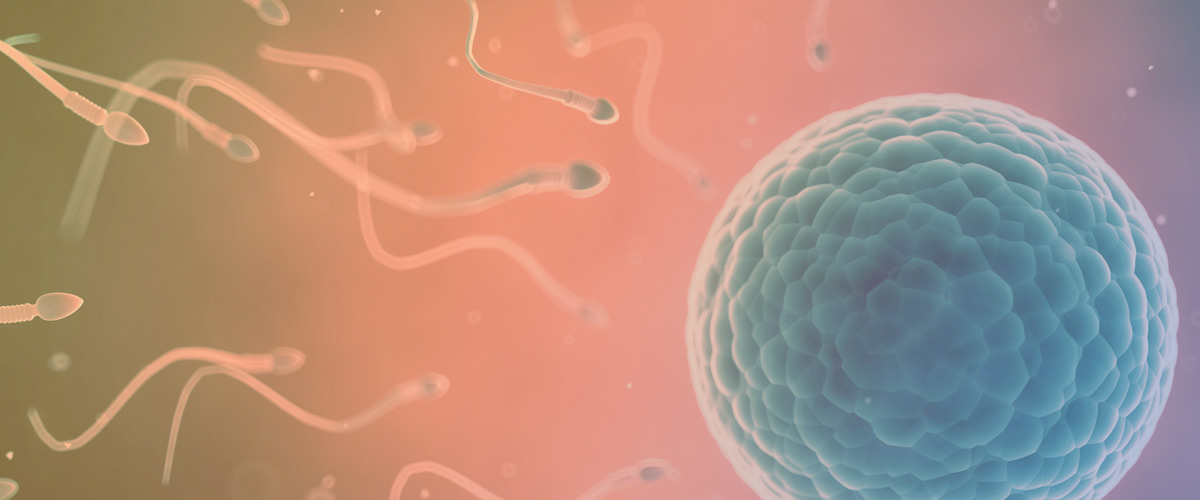The basics of human reproduction
How does conception work?
The average menstrual cycle lasts 28 days, with the cycle’s first day considered to be the first day of menstruation. During the first 14 days of the cycle, an egg matures in a woman’s ovaries. This maturation process is stimulated by a hormone called follicle stimulating hormone (FSH). The ‘coat’ around the maturing egg produces another hormone, estrogen, which makes the lining of the uterus prepare for pregnancy. The uterus grows a nutrient-rich and secure bedding for the egg to settle into after fertilization.

Around day 14 of the cycle, the egg is ready for release and emerges from the ovary. This release is triggered by an increase in another hormone called luteinizing hormone (LH). After release, the egg has about a 12-24 hour window where it can be fertilized by a sperm. Sperm may survive in a woman’s genital tract and be capable of fertilizing an egg for up to three days after intercourse. Fertilization happens high up in the fallopian tube.

If a sperm penetrates the egg, an embryo will begin to form. This happens through cell division: one cell becomes two, which become four, which become eight, and so forth. After about seven days, the embryo reaches the uterus and embeds itself in the lining of the uterus. Cells surrounding the embryo make the hormone human chorionic gonadotropin (HCG), which signals the woman’s body that pregnancy has occurred and the menstrual cycle stops until after delivery. If conception does not occur the uterine lining will be shed and the cycle will begin again.
Am I pregnant?
The best way to tell if you are pregnant is by observing that you have missed a menstrual period. The period does not happen at the expected time because the hormones of pregnancy support the lining of the uterus and prevent its breakdown. The hormone HCG can be detected by a blood test as early as day 24 of the cycle and in urine as early as day 26. If you have a positive home pregnancy test, it is time to choose and contact a health care provider. You should also be sure to eat a healthy diet, avoid alcohol and other substances, and be sure to continue to take a prenatal vitamin that contains folic acid. Signs that you may be pregnant include breast tenderness, fatigue, increased urination, nausea, and of course, a missed period.

